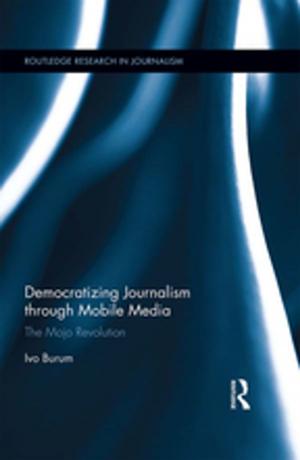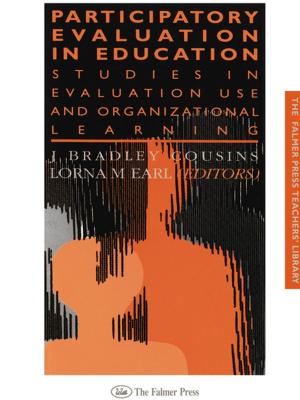Functional Requirements for Bibliographic Records (FRBR)
Hype or Cure-All?
Nonfiction, Reference & Language, Language Arts, Library & Information Services| Author: | ISBN: | 9781317951599 | |
| Publisher: | Taylor and Francis | Publication: | October 31, 2013 |
| Imprint: | Routledge | Language: | English |
| Author: | |
| ISBN: | 9781317951599 |
| Publisher: | Taylor and Francis |
| Publication: | October 31, 2013 |
| Imprint: | Routledge |
| Language: | English |
Get the straight facts on FRBR-and whether it is right for you!
In 1998, Functional Requirements for Bibliographic Records (FRBR) was a conceptual model promoted by the International Federation of Library Associations and Institutions (IFLA) as being the recommended new advancement in cataloging. As libraries strive to serve their users better in the coming years, questions remain as to whether FRBR may provide an answer on how to improve cataloging systems. Functional Requirements for Bibliographic Records (FRBR): Hype or Cure-All? explores not only the theoretical issues, such as the concept of works and the bibliographic relationships of musical works, but also provides a unique survey of most of the systems that actually implement FRBR such as the AustLit Gateway. This book describes the challenges that accompany implementation of FRBR, and how this abstract approach to cataloging can be a useful, practical tool to help improve library systems.
Functional Requirements for Bibliographic Records (FRBR): Hype or Cure-All? clearly explains the concepts, ideas, and practical applications of FRBR. The book is comprised of four major sections. A chronological section explains how FRBR was developed and how it will evolve in the future; a theoretical section reviews how FRBR analyzes different types of library materials; a practical aspects section examines how some systems actually use FRBR; and lastly, a section that explains an alternative to FRBR-the XOBIS project-which shows that other solutions are possible to meet future cataloging challenges.
Functional Requirements for Bibliographic Records (FRBR) explores:
-
innovative features, including the Semantic Web activities
-
future evolutions in cataloging
-
alternatives to FRBR
-
the history of IFLA Functional Requirements for Bibliographic Records Study
-
an updated description of the entity-relationship model being developed by the Working Group to extend the FRBR model to cover authority data
-
key aspects of the FRBR and FRANAR models that will need to be re-examined
-
the concept of expression
-
the cataloging of hand press materials
-
the AustLit Gateway
-
musical works in the FRBR model
-
the Paradigma Project at the National Library of Norway
-
the FRBR and the performing arts
-
oral traditions and FRBR
-
the design of future systems
-
the European FRBR research initiative
-
FRBRizing OCLC’s WorldCat
-
the IFPA software and application interfaces
-
the Library of Congress’s FRBR Display Tool
-
XOBIS-metadata-the critical bridge between content and sophisticated access
Librarians, library science faculty, students, and vendors will find Functional Requirements for Bibliographic Records (FRBR): Hype or Cure-All? an invaluable source of information on both the theoretical and practical aspects of FRBR.
Get the straight facts on FRBR-and whether it is right for you!
In 1998, Functional Requirements for Bibliographic Records (FRBR) was a conceptual model promoted by the International Federation of Library Associations and Institutions (IFLA) as being the recommended new advancement in cataloging. As libraries strive to serve their users better in the coming years, questions remain as to whether FRBR may provide an answer on how to improve cataloging systems. Functional Requirements for Bibliographic Records (FRBR): Hype or Cure-All? explores not only the theoretical issues, such as the concept of works and the bibliographic relationships of musical works, but also provides a unique survey of most of the systems that actually implement FRBR such as the AustLit Gateway. This book describes the challenges that accompany implementation of FRBR, and how this abstract approach to cataloging can be a useful, practical tool to help improve library systems.
Functional Requirements for Bibliographic Records (FRBR): Hype or Cure-All? clearly explains the concepts, ideas, and practical applications of FRBR. The book is comprised of four major sections. A chronological section explains how FRBR was developed and how it will evolve in the future; a theoretical section reviews how FRBR analyzes different types of library materials; a practical aspects section examines how some systems actually use FRBR; and lastly, a section that explains an alternative to FRBR-the XOBIS project-which shows that other solutions are possible to meet future cataloging challenges.
Functional Requirements for Bibliographic Records (FRBR) explores:
-
innovative features, including the Semantic Web activities
-
future evolutions in cataloging
-
alternatives to FRBR
-
the history of IFLA Functional Requirements for Bibliographic Records Study
-
an updated description of the entity-relationship model being developed by the Working Group to extend the FRBR model to cover authority data
-
key aspects of the FRBR and FRANAR models that will need to be re-examined
-
the concept of expression
-
the cataloging of hand press materials
-
the AustLit Gateway
-
musical works in the FRBR model
-
the Paradigma Project at the National Library of Norway
-
the FRBR and the performing arts
-
oral traditions and FRBR
-
the design of future systems
-
the European FRBR research initiative
-
FRBRizing OCLC’s WorldCat
-
the IFPA software and application interfaces
-
the Library of Congress’s FRBR Display Tool
-
XOBIS-metadata-the critical bridge between content and sophisticated access
Librarians, library science faculty, students, and vendors will find Functional Requirements for Bibliographic Records (FRBR): Hype or Cure-All? an invaluable source of information on both the theoretical and practical aspects of FRBR.















